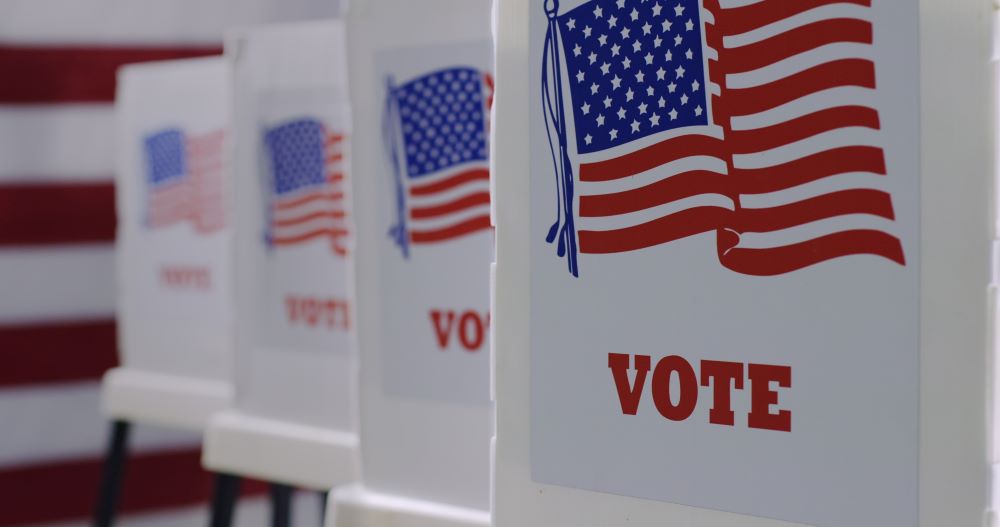Editor’s note: Although this article was originally published in 2012, the suggestions made here still apply to presidential elections.
In What to Expect When Presidential Candidates Come to Campus, Ohio State University’s deputy chief of police describes how his institution plans for campaign and other political VIP visits. Other college and K-12 campuses have also hosted high-profile political figures.
To find out what other campus protection professionals have learned from government VIP visits to their institutions, Campus Safety magazine spoke with Lt. Col. George Hare who is the deputy chief of the University of North Carolina Chapel Hill Department of Public Safety; Florida State University Chief of Police David Perry; and Evansville Vanderburgh School Corp. Director of Safety and Security Gerald Eugene Summers. All three had candidate/President Barrack Obama, Vice President Joe Biden, Michelle Obama, Hillary Clinton and/or Rick Santorum make presidential campaign stops at their schools.
Relationship With the Secret Service:
- “If you have waited until you’ve been given notice to make contact with your partners, you are too late. You should know your field contact liaison officers by name. You should have lunch with them at least once or twice in the past year. Make sure you know who your resources are so it’s not a cold call.”—Perry
Traffic Control:
- “If the traffic component doesn’t go well, the Secret Service could easily abort the whole mission. The motorcade has to continuously go. If all of a sudden there is gridlock because you failed to plan and the motorcade cannot make a direct route straight to the location, they will do an about-face and leave. They don’t know what caused the roadblock. It could be your inefficiency, or it could be somebody staged a traffic crash. Our public safety department is rather large and it incorporates parking and traffic control on campus. That gave us a huge advantage in being able to dedicate and delegate the traffic control to that whole division. That was a completely separate operations plan from our security plan. It’s one aspect that got praise from the White House staff.”—Hare
- “It’s still your campus, and you still have a say as to the limit of disruption you are willing to be a part of. Speak up as much as possible to maintain order and what is needed to still do business on campus.” —Perry
Two-Way Radios:
- “Radio interoperability is going to be a challenge for a lot of universities. It is usually the weakest link in any law enforcement operation, and it is no different in a university setting when the president is coming. Don’t assume you have interoperability. Test your interoperability before the event.” —Hare
Crowd Control:
- “What happens is anybody and everybody will show up to your school. People who you don’t want in your buildings will be in your buildings because they are open to the public. The Secret Service does a good job of screening everyone, but still, there were a lot of people in the building that I wouldn’t have let in if I had my way. Also, I would have asked the Secret Service to follow our fire marshal guidelines regarding the number of people allowed in the building. We were overwhelmed numbers-wise and that was a concern. If anything bad had happened, we would have had multiple people running around. It would have been a mess.” —Summers
Pre-Screening At-Risk Individuals (especially if the speaker is controversial):
- “We did our research. We spoke with other institutions that played host to [the speaker]. We looked at news clippings. We have an intelligence officer who did additional research and worked with our Florida Department of Law Enforcement to see if there was any other chatter.” —Perry
- “I dealt with a lot of people with special needs and mental health issues [when I worked for the local hospital], and I brought that information to the school corporation. When Mrs. Clinton and Mrs. Obama came to Evansville, one of the first things we talked about were those people who may cause concern. By knowing the community and knowing some of the individuals I had worked with previously in the hospital, I was able to share, ‘These are the ones I’m concerned about, and you might want to check into them.’” —Summers
Feeding Officers Who Work the Event:
- “You need to have staff clearly designated to make sure that all the officers you are responsible for are hydrated and fed, and it’s got to be really good quality stuff. You are asking officers to come to the campus to protect the president, and they are not getting paid.” —Hare
Being Flexible:
- “You go into [the event] on the front end with the knowledge that things can shift and you need to have a very flexible, resilient attitude in working with all of the entities. Otherwise, you’ll bet more frustrated than you need to be.” —Hare







